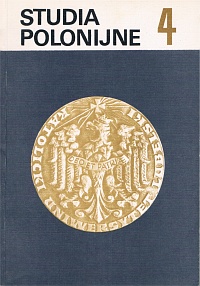Polish book trade in Westphalia and Rhineland till 1914
Main Article Content
Abstract
Polish book trade in Westphalia and Rhineland appeared almost simultaneously with the emigrants from the Polish territories annexed to Prussia, in the 70-ties of 19th century. The separation from motherland, and a larger amount of spare time after work caused a specific „hunger" for the printed word, which at the beginning was appeased by hawking book trade.
The first distributors of Polish books were people working in the local societies (e.g. Hipolit Sybilski), and as soon as this primitive form of trade became common — also miners and factory workers, who soon abandoned their jobs and opened their own book-shops (e.g. W. Józefoski).
These were not, however, bookshops like the modern ones, since they also sold fancy goods, stationary, paintings, devotional articles, tobacco, etc. Sometimes besides books, especially of religious character, coffins and mourning accessories, glass and china were sold there, and also bookbinder's, framer's, and glazier's workshops were run Even barbers engaged in book trade.
There were plainly a lot of customers, since in 1911 the police authorities found that there were no less than 123 bookshops or other places where books were sold in Westphalia and Rhineland. Only a few of them deserved their name, having a full assortment of Polish books printed in the three parts of the partitioned Poland. They were first of all bookshops attached to bigger press associations: „Wiarus polski” in Bochum (since 1893), „Dziennik Polski" in Dortmund (1904-1906) and „Narodowiec" in Herne (since 1909). This latter even had the main store of Karol Miarka's from Mikołów publications.
Bookshops, and even the smallest book-selling places were constantly kept under surveillance by the police, who often confiscated books, almanachs, postcards, proclamations, or even pins and buttons with national emblems. Such searches not always consisted only in confiscating the „forbidden" materials, but the owner or director eventually were sentenced to high fines or prison.
Polish book trade, especially the religious book, was probably profitable, since at the beginning of 20th century also big German publishers and bookbinding firms joined it (e.g. Butzon and Bercker, Jansen and Derricks, A. Riffarth, Van den Wyenbergh).
The outbreak of World War I Caused a considerable regress in Polish book trade, since many small bookshops were shut up when their owners were called up to the army, and also because a common pauperization of the population caused by the long war did not promote dissemination of books.

